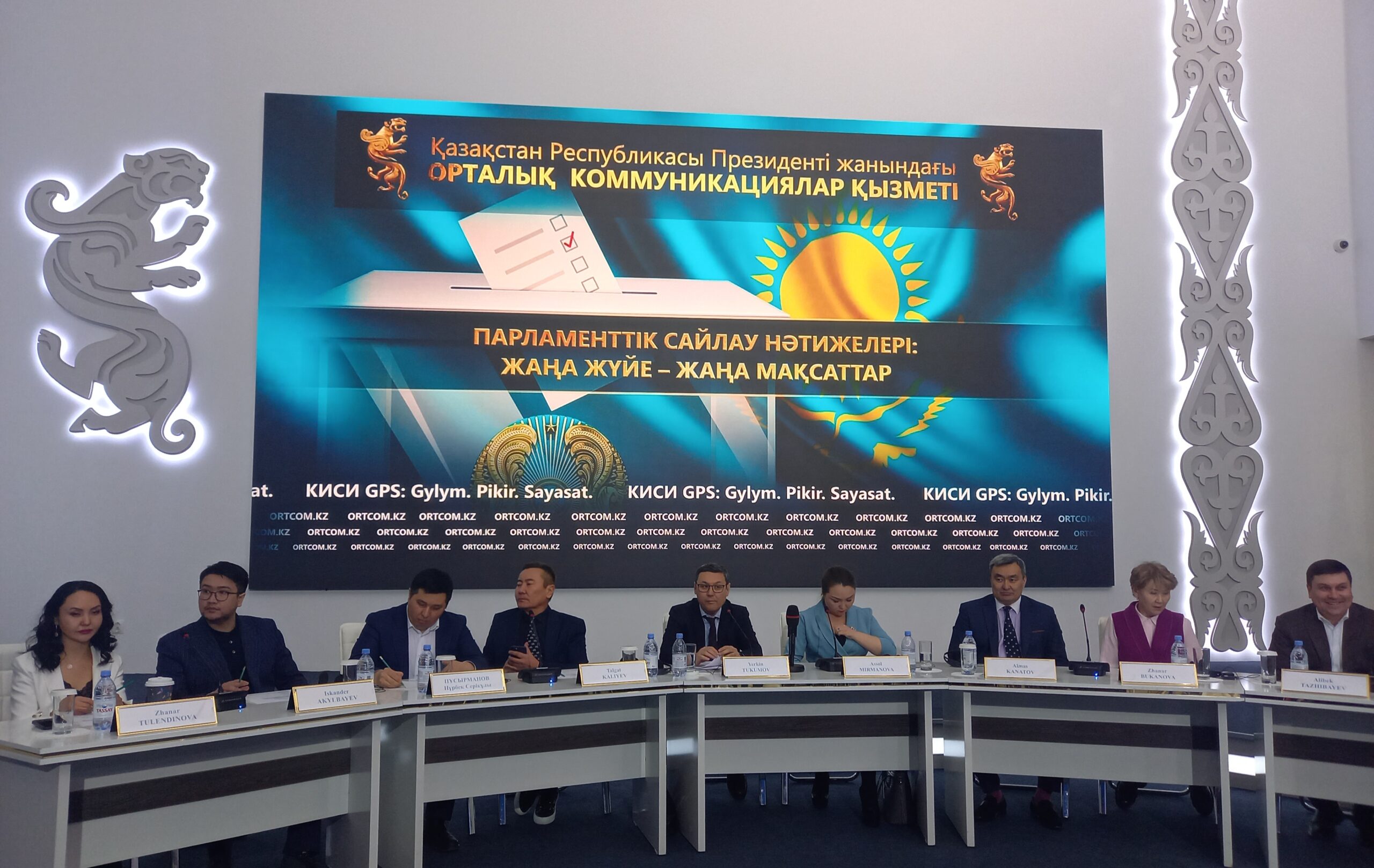ASTANA – The Kazakhstan Institute for Strategic Studies (KazISS) held an expert meeting on March 20 to discuss the preliminary results of the country’s parliamentary election, expected changes and the country’s development prospects.

Photo credit: The Astana Times.
According to Yerkin Tukumov, KazISS director , Kazakhstan is set to have a new, more pluralistic parliament.
“Six of the seven parties passed the [five percent] threshold to enter the Mazhilis. Since 1995, this is the most diverse and widely represented Mazhilis with various political parties,” he said.
Tukumov said that the parliamentary election became the most important event in terms of the political reforms and the electoral cycle, paving the way to substantial social and economic modernization.
“Further economic and social modernization is impossible without political reforms,” he said.
He expressed hope that the elected parties will meet the voters’ expectations and will build a strong and efficient parliament.
Tukumov also emphasized the importance of the elections to the maslikhats, local councils, noting that they are sometimes “more important than parliamentary election, as they deal with urgent social problems in the regions.”
According to Talgat Kaliyev, director of Institute of Applied Ethno-Political Research, the new composition of the parliament will bring vibrant interaction within the two parliament chambers and other state institutions.
“The new parliament can become influential. How the parties will act will be vital,” Kaliyev said.
Political scientists said that the country’s reforms will not stop here, as political reforms are expected to change the society’s attitude towards human rights, increase confidence in the state, initiate systemic changes, reduce corruption risks, pave the way towards economic diversification and create more favorable conditions for the development of small and medium-sized businesses.

